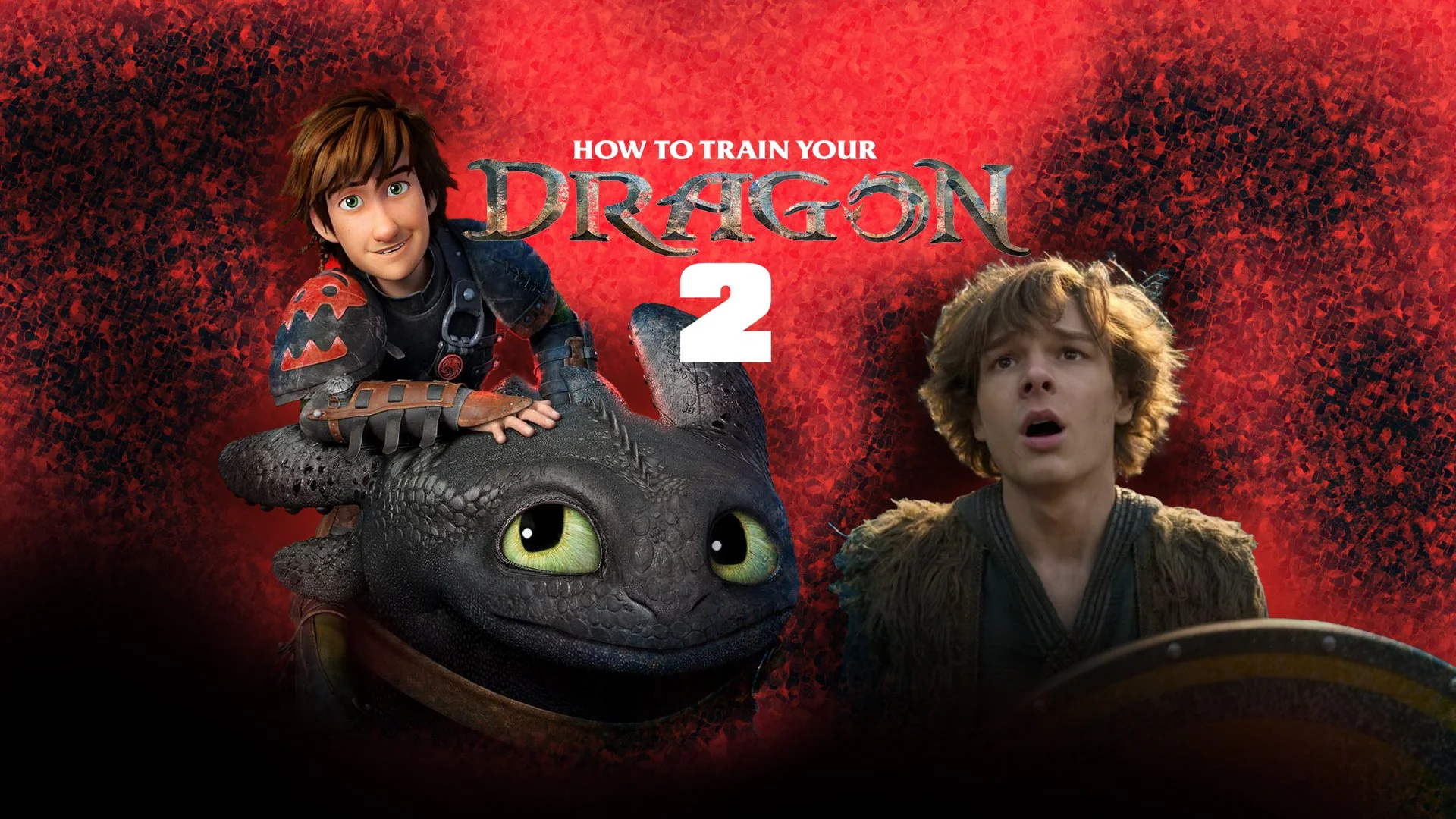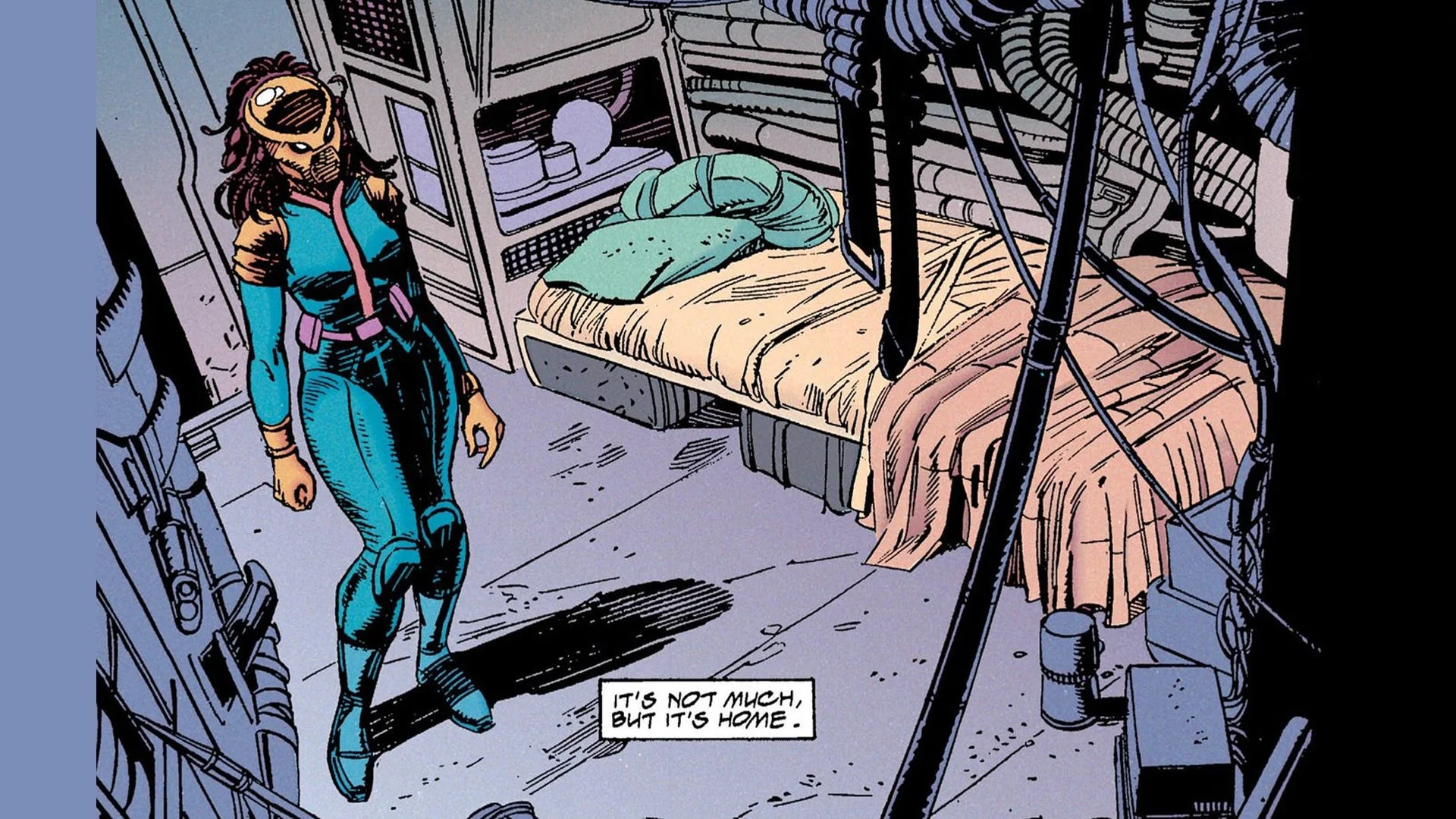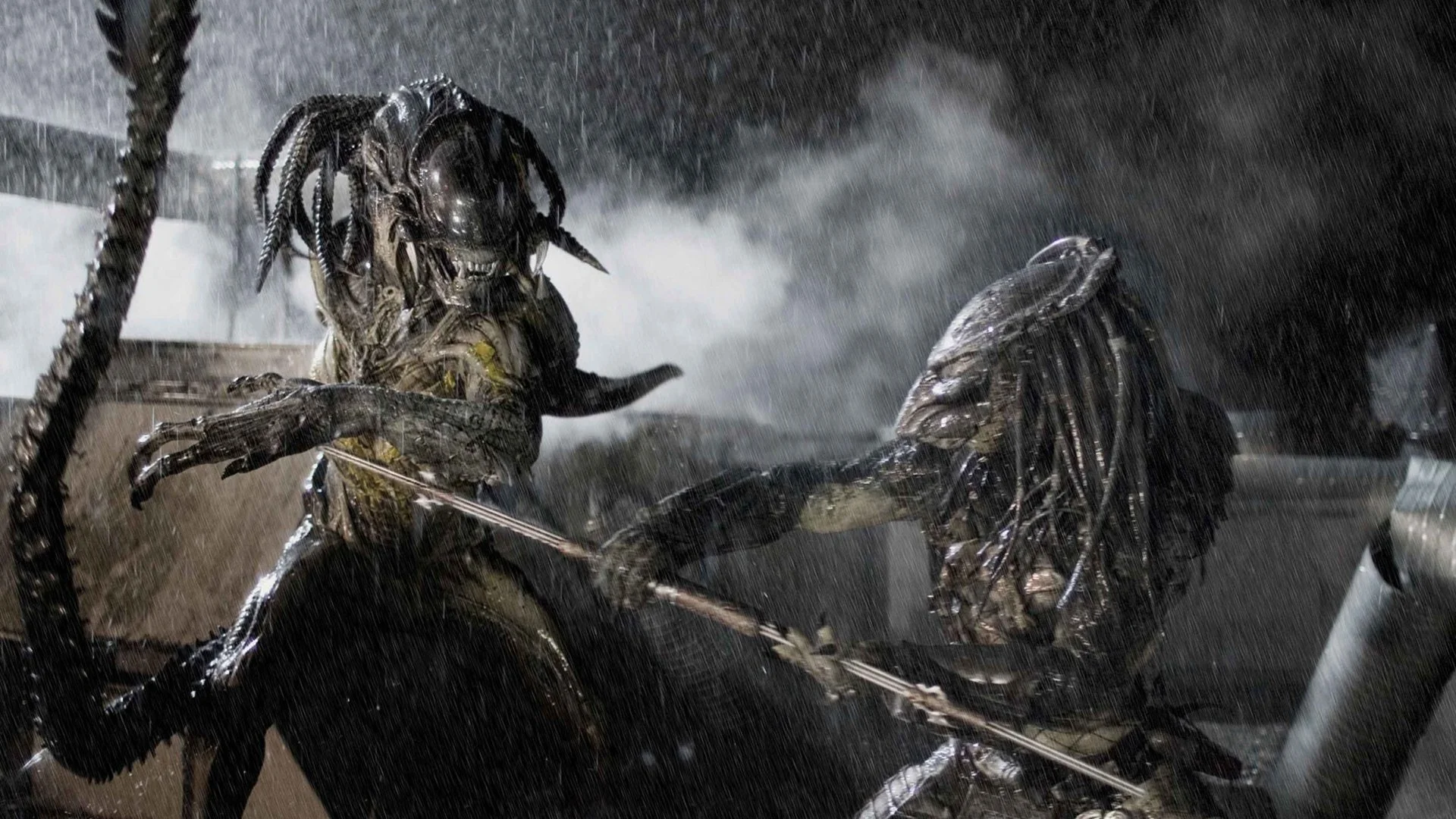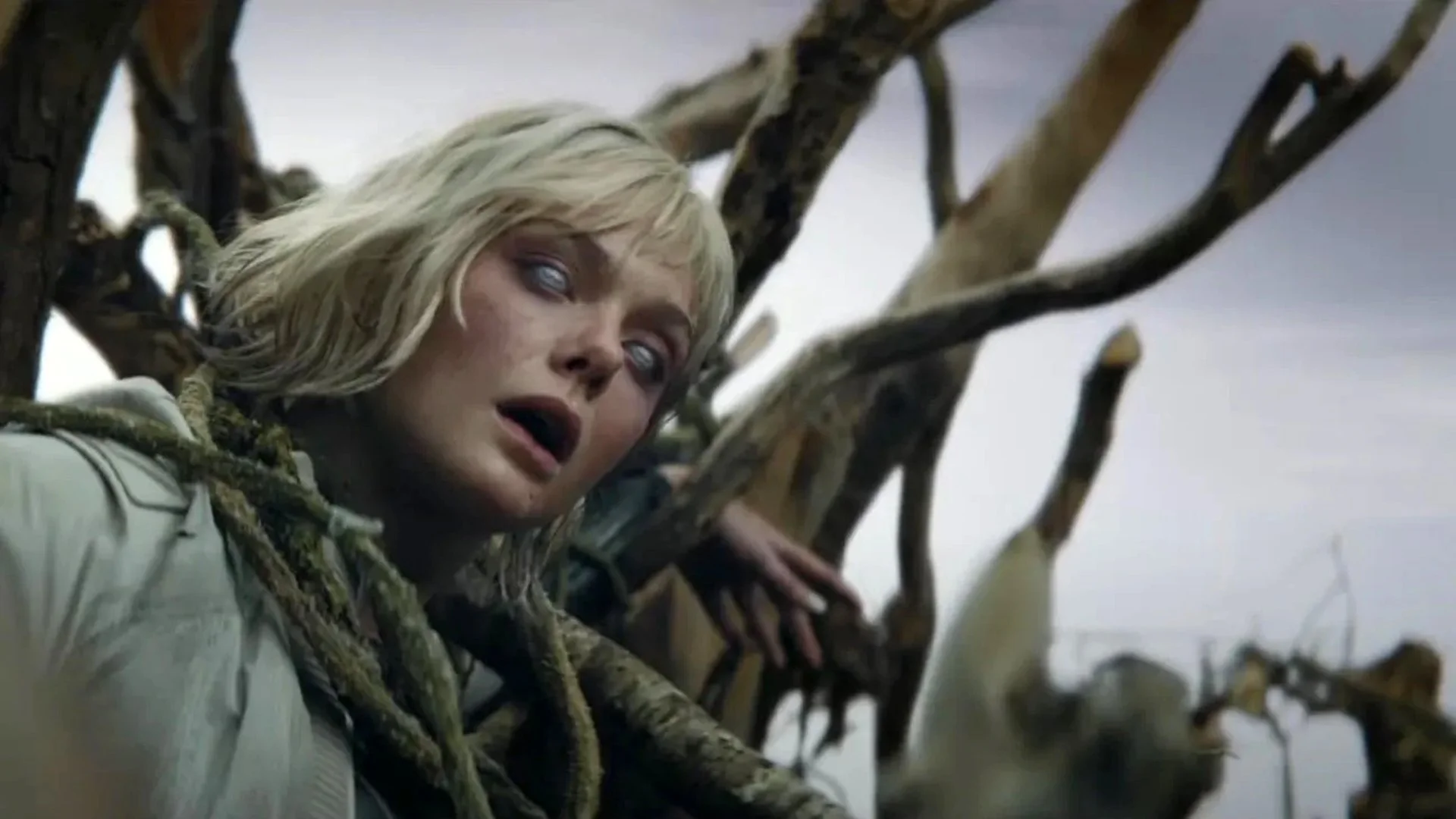By Brandon T. McClure (Cover Art by Mark Brooks)
In 2013 Marvel Comics Introduced Marcus Johnson, a previously unknown S.H.I.E.L.D. agent that was revealed to be using an alias because his real name was Nick Fury Jr. Revealed to be the son of the original Nick Fury, Nick Fury Jr. was modeled to look like Samuel L. Jackson who played Nick Fury in the Marvel Cinematic Universe (MCU), and the Ultimate Universe Nick Fury. Marvel decided to do this to try and synergize their comics with the far more popular films, but it wasn’t the first time they did this and it wouldn’t be the last. The latest example of this synergistic mindset is Gwen Stacy aka Spider-Gwen aka Spider-Woman aka Ghost-Spider. A character that Marvel has struggled with for almost a decade because of her popularity outside of the realm of comic books.
Spider-Gwen first appeared in the second issue of the 2014 mini-series Edge of Spider-Verse, which was released in the lead up to the massive Spider-Man event, Spider-Verse. This issue was massively popular and sold out at comic shops almost immediately. It received more than five reprints, tons of variants, and is the only issue from that series to spin off into an ongoing series. The point of Edge of Spider-Verse, wasn’t just to set up the Spider-Verse event, it was also to introduce new Spider characters into Marvel's multiverse. Edge of Spider-Verse #2, written by Jason Latour with art by Robbi Rodriguez, introduced readers to a version of Gwen Stacy living on Earth-65 where she became Spider-Woman and Peter Parker became the Lizard. Her costume was immediately iconic and she would go on to have nine solo titles, appear in multiple crossovers, and multiversal team-up titles, and very quickly make the jump to the small and big screen. She was so popular that Marvel commissioned an entire line of “Gwen-Verse” variant covers that lead to the creation of Gwenpoole (no relation).
Earth-65 is populated by unique takes on familiar Marvel heroes and villains, such as the lovable Bodega Bandit. On her Earth, Gwen went up against Matt Murdock, Kingpin of crime in this universe, a Trump inspired M.O.D.O.K., named M.O.D.A.A.K. (Mental Organism Designed As America's King), and more familiar villains such as The Punisher and The Vulture. Gwen even teamed up with Earth-65’s Captain America, Samantha Wilson. Other heroes weren’t explored but a 13 year old Reed Richards, who’s no less a genius, was introduced. Gwen would even get her own Venom suit after losing her powers to Earth-65’s version of Cindy Moon. But her most iconic trait is that she plays drums for The Mary Janes, a band where Mary Jane Watson (who became Carnage once) is the lead singer with a hit single called “Face It Tiger”. All of these stories were told by Jason Latour, the character's co-creator. Earth-65 started to look a lot less special after he left.
After Jason Latour, who would later be accused of sexual misconduct, left the title, the character fell to Seanan McGuire who would have Gwen hop back and forth between Earth-65 and Earth-616, the main Marvel universe where all their comics are set. In the two series that McGuire wrote, Gwen would go up against Earth-616 threats like The Jackel, a villain historically obsessed with Gwen Stacy. But the new series did set up new antagonists for Gwen in her home dimension in the form of Sue and Johnny Storm. The siblings were celebrities who were captured by Dr. Doom, only to return to New York City as superpowered heroes. It’s heavily implied that Sue is the new Dr. Doom and she demands that Gwen leave Earth-65 permanently. This story has never been followed up on, and was possibly ignored by the time of her next solo title. Not to say that Seanan McGuire didn’t do good work on the two Spider-Gwen titles she worked on. She was restricted by Marvel editorial in what she could do and only had a total of twenty issues that ended at the start of the COVD-19 pandemic.
Spider-Gwen’s popularity led her to be adapted into many shows, which, along with her film appearances, began to reveal a problem with how Marvel was handling this once popular character. In 2018, Marvel released a multi-media series called Marvel Rising. This series focused on teenage heroes and introduced Gwen Stacy as Ghost-Spider. Since Spider-Gwen would begin interacting with the larger Marvel universe, she could not be called Spider-Woman (there were already three female heroes with that name), even though that was the name she went by in her home universe. She could also not be called Spider-Gwen by the other characters she interacted with because that was the title of the comic book and not her codename. That same year, Marvel launched a new ongoing series titled Ghost-Spider to try and get that name to stick. Considering the current ongoing series is called All-New Spider-Gwen: Ghost-Spider, it’s safe to assume that it still hasn’t stuck. If two heroes can hold the moniker of Spider-Man, then two heroes can be called Spider-Woman.
2018 was a big year for Spider-Gwen as she also appeared in the Academy Award winning film, Spider-Man: Into the Spider-Verse directed by Bob Persichetti, Peter Ramsey, and Rodney Rothman and written by Phil Lord and Rodney Rothman. This film saw multiple Spider people from across the multiverse, including Peter B. Parker, Spider-Man Noir, Penny Parker, Spider-Ham, and Spider-Gwen, team up with Miles Morales to stop the Kingpin from destroying the multiverse. This film plays with the idea of Gwen and Miles forming a romantic bond, something that Marvel tried to capitalize on by crossing Gwen over into Miles’ comic book series. This was the start of what would eventually lead to Spider-Gwen’s downfall. Marvel Comics felt that the popularity of Spider-Gwen came from her crossover appeal. It’s the same reason why Marvel Comics revisits the Spider-Verse storyline every couple of years. In the case of Spider-Gwen, they began to chase what made the movie popular.
Marvel Comics has a habit of trying to align their comic book characters with the ones in the films. It makes a certain amount of sense when you think about it because movies make millions or even billions of dollars and are seen by millions of people. By contrast, comic books are read by thousands. How do you get movie viewers to become comic book readers? Comics can feel impenetrable to the general audience so if someone wanted to pick up an Avengers comic and the team didn't look like the one on the big screen, they might decide to skip it. This mentality is the only reason why Brian Michael Bendis and Mark Bagley launched Avengers Assemble in 2012, or why Marvel just released The New Avengers by Sam Humphries and Ton Lima, which was originally announced as Thunderbolts*. It even happened to Blade after the film came out in 1998. Marvel loves synergy. They feel like it will help ease the general public into becoming comic book readers despite most evidence pointing to the contrary. It’s not to say that it doesn’t happen, but it hasn’t happened in a way that significantly moves the needle. So in order to make it easier for Spider-Gwen to crossover with the other spider heroes of New York City, Marvel has removed her from Earth-65 and placed her on Earth-616.
There’s potentially another reason for this move, just to play devil's advocate. For ten years, Marvel published a line of comics called The Ultimate Universe. What started as an immensely popular line of comics that lead to the creation of Miles Morales, began to dwindle in popularity. It came to an end with Secret Wars, an event created by Jonathan Hickman that forced every Marvel comic to be either cancelled or placed on hold. At the end of the event, the Ultimate Universe was gone and some heroes and villains had been folded into Earth-616 such as Miles Morales and The Maker (an evil version of Reed Richards). Publishing a series set in an alternate reality probably creates some confusion with readers and considering it was the only series like that post-Secret Wars, it was probably causing a headache for Marvel publishing. It probably made sense to fold her into Earth-616 because Miles regained his popularity when it happened to him.
Recently Marvel Comics launched All-New Spider-Gwen: Ghost Spider, the ninth solo title for the character, written by Stephanie Phillips with art by Paolo Villanelli. The new series reveals that Gwen has made Earth-616 her new permanent home. Gwen has now permanently left Earth-65, the villains, the heroes, and the friends behind in favor of the all too familiar cast of Earth-616. She is no longer a unique spider in a world that can be explored and expanded upon indefinitely. She’s now just another spider hero in a world with far too many spider heroes. The hard part for fans was how slow it happened. It was inevitable, but it started small. Just one off crossovers at first, then she was going to school in Earth-616 with Peter Parker as her professor, then she teamed up with Loki to rewrite the universe, and now Ghost-Spider has moved in. It’s not to say that the character can’t flourish under the watchful eye of a talented writer like Stephanie Phillips, it’s just hard to watch a character lose all they’re potential in favor of the Marvel synergy that comes for everyone, even Tony Stark (they were writing him like RDJ for about 10 years. No one was happy about it).
In fairness the series had a hard time maintaining the momentum of her debut issue. The ongoing series was fast tracked to come out before Secret Wars but was then cancelled after five issues, then returned after Secret Wars. But while the new series went for 34 issues, the book struggled in sales and then Marvel decided to make things confusing by trying to make “Ghost-Spider” happen. There’s a reason why whenever The Amazing Spider-Man gets a reboot it doesn’t change its title. Changing the title of a series confuses longtime and new readers. Nine solo titles in ten years is a hard sell for readers. Eventually they stop trying. But Marvel is constantly chasing the first issue bump in sales. Basically they noticed that new number ones make more money, so they try to capitalize on that whenever they can. Spider-Gwen became a shell of the character that fans first fell in love with and every subsequent series took her away from her world and the stories fans were invested in. Or perhaps she was never meant to have this popularity and should have stayed within the pages of Edge of Spider-Verse #2.
Her popularity doesn’t seem to ever translate to her comics. Spider-Gwen has a flourishing merchandise line for girls of all ages. Her iconic design persists through popular culture and has broken through to the mainstream. It sometimes feels like she’s passed Jessica Drew, Spider-Woman, as the most iconic female Spider hero. Hot Topic is littered with jackets, sweaters, shirts, skirts, bras, and more sporting the white, pink and black of Spider-Gwen. But does this translate to comic book sales? Sadly no. Spider-Gwen may not actually be a popular comic book character but is instead a popular design or brand. Her merchandise sales are likely the only reason why Marvel keeps publishing her comic and keeping her on Earth-616 is the only way they could think to boost her popularity. But in doing so, she’s basically become nothing more than a brand ambassador for Marvel and not a character with a rich comic book history. Just a Frankenstein monster of a character kept alive through the power of merchandise. A cynical way of looking at it for sure.
Rather than exploring a rich new world of possibilities Marvel has chosen to ignore all of that in favor of easy crossover with other spider heroes. It's almost like they’re ashamed that she's from another universe and would rather everyone forget that. Perhaps her new title will ignite her popularity again, and Spider-Man: Beyond The Spider-Verse is just around the corner which will see Hayley Steinfeld reprise her role as the most popular version of the character. But the potential she once had is gone. Her supporting cast is gone in favor of Peter Parker and his gang. Her world is gone. Now fans have to watch as a character who burst on to the scene with excitement dies a slow and painful death into obscurity, overshadowed by the more popular spider heroes. Her life on Earth-616 just isn't as interesting as what could have been on Earth-65.























